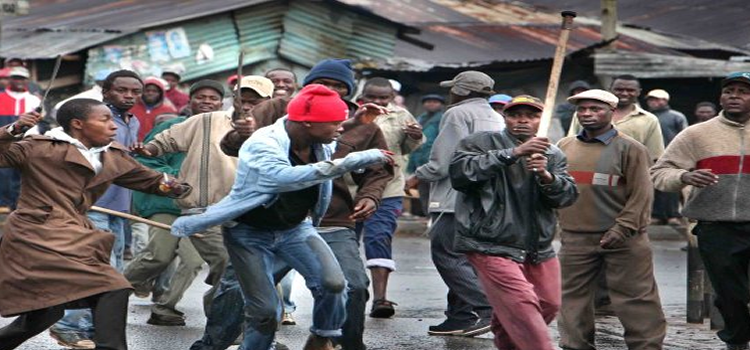By Journalists For Justice
Survivors of post-election violence in Kenya could finally benefit from the Trust Fund for Victims (TVF) established by the International Criminal Court.
At the moment, survivors in Kenya cannot get assistance due to conditions set out for reparations. For survivors to benefit, there has to be a conviction at the ICC, although this was not the case when the fund started its operations in northern Uganda considered a hotspot for the Lords Resistance Army.
On Monday, after he retained his position as TVF chair, Motoo Noguchi noted that although it is the responsibility of States to care for victims, the board will explore expanding assistance mandate activities in other ICC situation countries such as Kenya.
The current structure of the TFV only provides the minimum capability to give assistance and reparations.
“The new Board discussed how the TFV can continue to achieve tangible results despite the constraint of resources and other challenges. We are aware of the long wait for victims in need and will do our best on our part to start reparations programs without further delay, while strengthening programs under the assistance mandate. We think we must take action and make a difference,” he said.
The question of reparation is one that survivors are still grappling with since the Kenyan government is yet to lay ground for the establishment of the Sh10 billion Reparations Fund promised by President Uhuru Kenyatta in his State of the Nation Address in 2015.
.jpg)
The fact that the survivors cannot get ICC-ordered reparations because there was no conviction in any of the Kenyan cases, attracted mention by the presiding judge in the Ruto-Sang case, Chile Eboe-Osuji. In his opinion, Osuji said that there should be reparations even in situations where there are no convictions.
“The foregoing reasons and more compel me to the view that the question of reparation or ex gratia assistance in lieu of reparation for the victims of the Kenyan post-election violence of 2007-2008 is ripe for examination without further delay: notwithstanding the absence of a conviction,” he noted after the charges against Ruto-Sang were vacated.
The judge observed that the result of “a very high profile campaign” to arbitrarily end the cases entailed ensuring there was no conviction, which would have made it possible for the accused persons to pay reparations to victims. Further, Osuji said prospects of conviction in an ICC case are beyond the control of victims.
“Regarding the victims’ right to reparation, as a matter of entitlement, one question that may arise to be considered is whether there is an obligation upon the Government to make reparation to the victims. That question may arise from the following factors, among others: (a) as a factual matter, the Government failed to protect the victims from the post-election violence that fractured their lives in varying ways; (b) as found by the Waki Commission, there had been previous episodes of post-election violence that went unpunished, hence contributing to a culture of impunity that culminated in the 2007-2008 post-election violence,” he said.
Osuji’s view has divided legal opinion with some experts saying the Kenyan Government cannot be compelled to pay since it was not the one on trial.
To further support his view, Osuji cited the European Convention on Compensation of Victims of Violent Crimes that does not require conviction as perquisite for compensation.
To make a case for the Kenyan victims stronger, Human Rights Watch (HRW) has formally written to the ICC fund urging it to assess the Kenyan situation to determine the support required.
“We urge the Trust Fund to carry out its assessment of the situation in Kenya as soon as possible, in order to prepare the way for the implementation of assistance projects, including urgently needed physical and mental healthcare and psychosocial support for rape survivors. The assessment should determine how a broad range of victims are identified and connected to services that will be made possible through Trust Fund projects. It should also ensure that survivors are not only consulted, but have an active role in the Trust Fund design and planning process,” says HRW in the letter.
Elizabeth Evenson, senior counsel in the International Justice Program at HRW is quick to point out that the survivors’ expectations should be managed.
“We know they (TVF) face resource and structural constraints. Our aim was to see at least an assessment of the situation in Kenya and ideally other ICC situation countries, like Côte d’Ivoire, undertaken as soon as feasible, but even after that we know from other situation countries that it can be a long process before projects are started,” she said during an interview with JFJ.
Read: Judge Osuji’s views here







